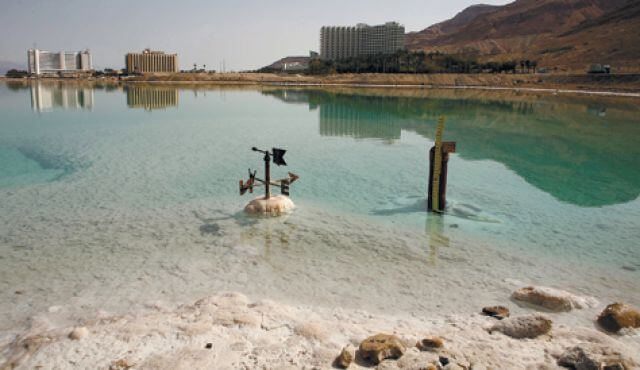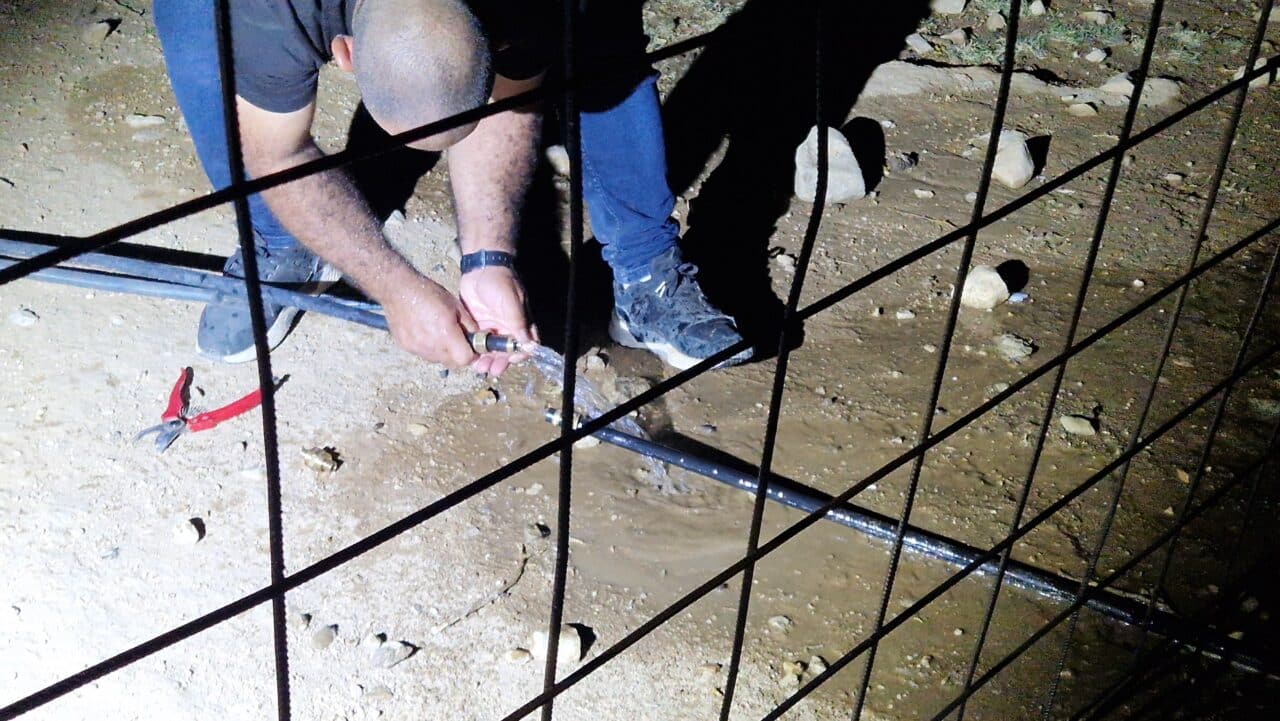Israel rejects Palestinian claims, registers Dead Sea land as state land
By Chaim Levinson, Haaretz Mar.28, 2013
Some 35,000 acres of land previously under water are now exposed due to the shrinking sea line of the Dead Sea. Palestinians, who had hoped to claim it as their own for a tourism project, have lost out to the State of Israel.
The shrinking sea line of the Dead Sea has opened up a Palestinian-Israeli legal battle over newly-exposed earth, and it looks as if the State of Israel has won.
After two years of deliberations, some 140,000 dunams (35,000 acres) of land exposed by the receding of the northern Dead Sea can be registered as state land by the Civil Administration in Judea and Samaria. The decision comes after the preliminary registration committee rejected the claims of local Palestinian villages to the land.
Once the registration is completed, the state can allocate the land to tourism projects, but will have to decide whether to allot it to Israelis or Palestinians. For years the Palestinians have been demanding land along the northern Dead Sea to erect a tourism project of their own, which would include a hotel, but their requests have been rejected.
Over the past 20 years, the Dead Sea has been receding to a considerable degree, exposing stretches of land that were formerly underwater. Several years ago the legal advisers of the Civil Administration decided to launch a process of “preliminary registration” of the land before declaring it state land.
The preliminary registration process in the West Bank is a procedure that ends with a declaration that the land belongs to someone and is registered as such in the Land Registry. The state and any individual with a claim to the land can bring evidence of ownership for the preliminary registration committee to consider. The panel is an independent body comprised of legal experts.
As part of the procedure, the Israel Defense Forces checks with the Jordanian authorities as to whether there had ever been a Palestinian village there, as well as if anyone had purchased any rights to the land. In this case, neither is possible since the land had been underwater.
But the adjacent villages of Zaatra, Sawahara, Dar Salah and Tekua filed claims, arguing that since they were owners of the old shorelines, since the shoreline has moved they are now entitled to ownership of the new shoreline.
The committee deliberations ended last week with the army representatives rejecting the Palestinian claims, arguing that they could offer no proof they owned the land, and that it would be proper to declare it state land. Now the state can proceed with the process.
The northern Dead Sea has three beaches that are operated by the Megilot Regional Council, which charges admission fees to bathers. The council expects to receive rights to the new land so that it can build tourism facilities closer to the new water line.
As reported Thursday in Haaretz, since 1967, Palestinians have been allocated 0.7 percent of some 1.3 million dunams (325,000 acres) of state-owned land in the territories, compared to 38 percent allocated to the settlements.


